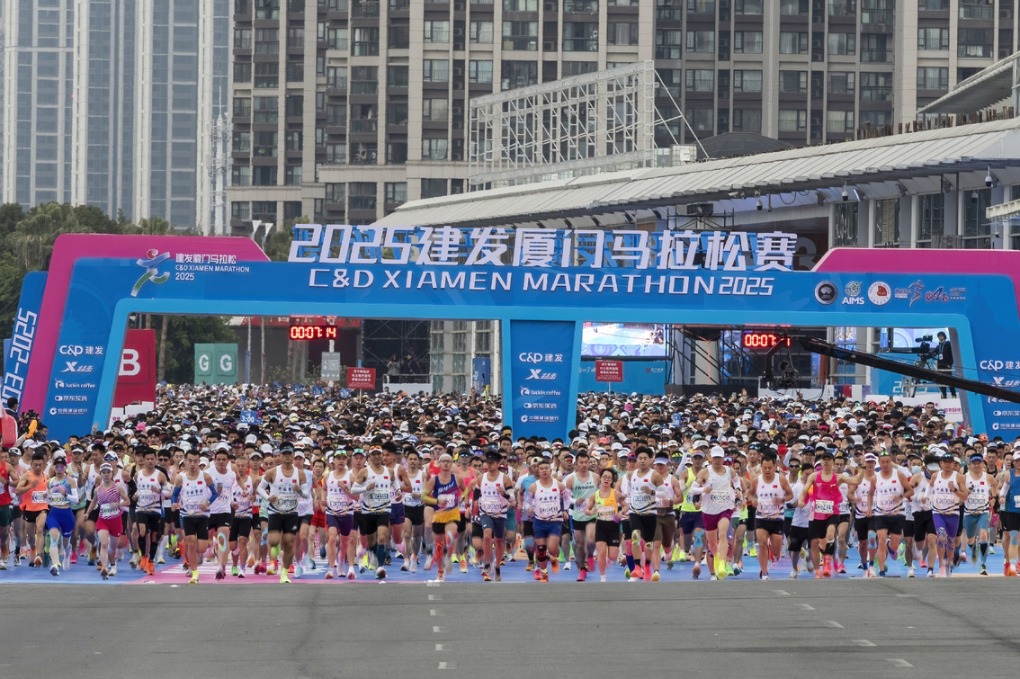Tianjin eye expert shares tips for winter sports eye safety

Winter sports are becoming more popular with the upcoming Beijing Winter Olympics. An eye expert from Tianjin has shared some tips for keeping your eyes safe while playing these sports.
Hua Yan, president of China Ocular Trauma Society, vice president of Asian Pacific Ophthalmic Trauma Society, and president of Tianjin Medical University, has the following suggestions for winter sports enthusiasts.
Eye injuries caused by winter sports mainly include physical ocular trauma (snow blindness) and mechanical ocular trauma.
1 Snow blindness
Snow blindness generally occurs within 4-10 hours of UV exposure. The symptoms gradually weaken after 12 to 48 hours, although they can last for several days in severe cases.
The UV rays that cause eye injury mainly come from light reflecting off of snow and ice (about 95 percent).
After being exposed to this light for several hours, snow blindness symptoms can occur, including tingling, burning, swelling, photophobia, tearing, blurred or deformed vision, swelling of the eyelids, and even temporary loss of vision.
There is no effective treatment for snow blindness, hence prevention should be emphasized, such as wearing UV-blocking sunglasses and goggles or full-face grey glasses when outdoors.
Once snow blindness occurs, it is necessary to go indoors as soon as possible or cover the eyes with an eye mask or clean gauze. Mild symptoms can be relieved by a cold compress, while anti-inflammatory and corneal epithelium growth drugs should be used in severe cases.
2 Mechanical ocular trauma
Mechanical ocular trauma, such as hard objects injuring the eye after a fall on the ice, can result in eye contusion, eyelid laceration, eyeball rupture, and other eye injuries.
People should wear helmets, goggles and other protective gear to prevent the occurrence of mechanical ocular trauma.
Once ocular trauma occurs, for patients with swelling eyelids, cold compresses should be immediately applied with an ice pack or a cool towel to reduce swelling and relieve pain.
For those who have eyelid lacerations but no damage to the eyeball, it is important to wrap the wound with clean dressing and go to a hospital for debridement and suturing as soon as possible.
If a foreign body directly pierces or scratches the eyeball, causing the eyeball to rupture, do not wash the injured eye with water or apply any medicine. Put a clean dressing on the wounded eye and gently wrap it with a bandage instead. The injured patient should be sent to a hospital immediately, otherwise blindness may occur.
For those who participate in winter sports, it is best to conduct routine eye examinations before participating in sports to see if their vision is suitable for intense winter sports. People with high myopia are prone to retinal detachment under external force, and should be cautious with these sports.
Most Popular
- Fallen soccer giants signal end of China's big-spending era
- Pistons tame Wolves despite Edwards' heroics
- City shows a bit more Pep with successive wins
- Arteta aghast at Brighton penalty as Gunners misfire
- A marathon year for Belgian amateur
- As life without Butler begins, Heat fails to ignite






























